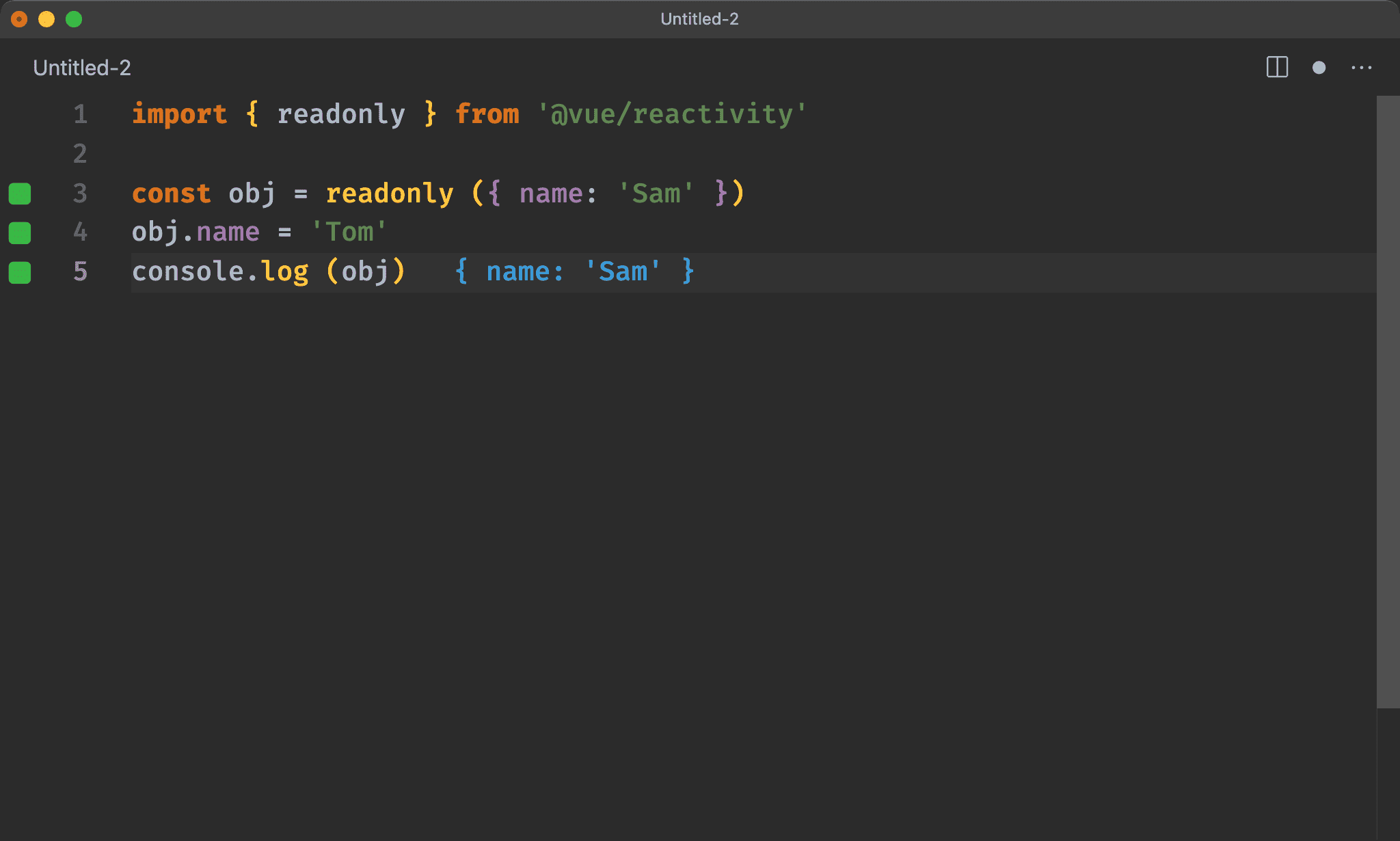Although we use const as the modifier for an Object, we can still modify its property. readonly comes to the rescue of semantic.
Version
Vue 3.2
Mutable Object
<script setup>
const obj = { name: 'Sam' }
obj.name = 'Tom'
console.log (obj)
</script>
obj is defined as const, but we can still modify the value of name property.

Immutable Object
<script setup>
import { readonly } from 'vue'
const obj = readonly ({ name: 'Sam' })
obj.name = 'Tom'
console.log (obj)
</script>
Use readonly with Object, and it will return a readonly proxy. We can not modify the value of name property. It is a real const in semantic.

WebStorm knows readonly and gives us a warning.

@vue/reactivity
import { readonly } from '@vue/reactivity'
const obj = readonly ({ name: 'Sam' })
obj.name = 'Tom'
console.log (obj)
If we want to use readonly on the backend, we can import readonly from @vue/reactivity.

Conclusion
- We can use
Object.freezeto simulate an immutable object but only shallow. Vue’sreadonlyis deep : any nested property accessed will be readonly as well - Not only using
readonlyon the frontend, but also the backend